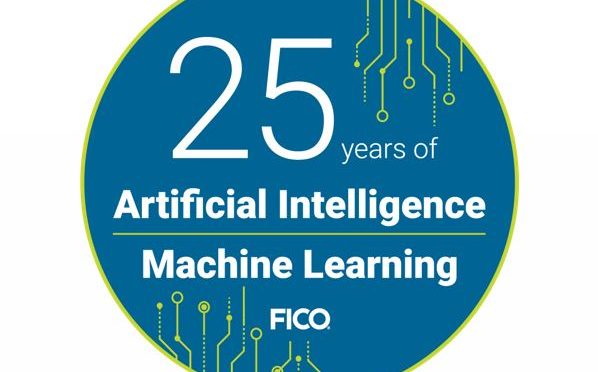The Future of AI: Redefining How We Imagine
Blog: Enterprise Decision Management Blog

To commemorate the silver jubilee of FICO’s use of artificial intelligence and machine learning, we asked FICO employees a question: What does the future of AI look like? The post below is one of the thought-provoking responses, from Sadat Nazrul, an analytic scientist at FICO, working in San Diego.
Looking at the next 20 years, I see us moving well beyond the productivity enhancements AI has brought about so far. With the advent of AI, we will be seeing a renaissance in our own personal lives as well as society as a whole.
Healthcare
Today, our gadgets have the ability to monitor the number of steps we take, the rate of our heart beat, as well as the contents of our sweat. All this rich information allows a team of doctors, engineers and analysts to monitor our well-being and to maintain our peak performance. Similarly, with innovations in genomic sequencing and neural mapping passing FDA trials, we will soon be seeing huge leaps in the field of personalized medicine. AI will help us understand individual physiological needs in order to come up with customized prescriptions and improve our overall health standards.
Cognitive Abilities
People are keen to improve cognition. Who wouldn’t want to remember names and faces better, to be able more quickly to grasp difficult abstract ideas, and to be able to “see connections” better? Who would seriously object to being able to appreciate music at a deeper level?
The value of optimal cognitive functioning is so obvious that to elaborate the point may be unnecessary. Today we express ourselves through art, movies, music, blogs, and a wide range of social media applications. In the field of image recognition, AI can already “see” better than we can by observing far more than the RGB. Virtual Reality allows us to feel as though we have teleported to another world. New idioms of data visualization and Dimensionality Reduction algorithms are always being produced for us to better experience the world around us.
We are constantly trying to enhance our 5 senses to go beyond our human limits. 10 years from now, these innovations, coupled with IoT gadgets, will act as extensions of who we are and help us experience our surroundings more profoundly.
Emotional Intelligence
Just as we enhance our 5 cognitive senses, so too do we enhance our ability to express ourselves and to understand those around us.
Many times, we don’t even know what we want. We strive to connect with those around us in a specific way or consume a particular product, just so we could feel a very unique emotion that we fail to describe. We feel much more than just happiness, sadness, anger, anxiety or fear. Our emotions are a complex combinations of all of the above.
With the innovations in neural mapping, we will better understand who we are as human beings and better understand the myriad emotional states that we can attain. Our complex emotional modes will be better understood as we perform unsupervised learning on brain waves and help find innovative ways to improve our emotional intelligence. This would include both understanding our own emotions and being more sensitive towards those around us.
Perhaps we can unlock new emotions that we have never experienced before. In the right hands, AI can act as our extensions to help us form meaningful bonds with the people we value in our lives.
Experience and Imagination
The effect of AI on our experience and imagination would result from an aggregate of better cognitive abilities and emotional intelligence. The latest innovations in AI may help us unlock new cognitive experiences and emotional states.
Let’s imagine that the modes of experience we have today is represented in space X. 10 years from now, let’s say that the modes of experience are represented in space Y. The space Y will be significantly bigger than space X. This futuristic space of Y may have access to new types of emotions other than our conventional happy, sad and mad. This new space of Y can even allow us to comprehend abstract thoughts that reflect what we wish to express more accurately.
This new space of Y can actually unlock a new world of possibilities that lies beyond our current imagination. The people of the future will think, feel and experience the world at a much richer degree than we can today.
Communication
10 years ago, most of our communication were restricted to phones and emails. Today, we have access to video conferences, Virtual Reality and a wide array of applications on social media. As we enhance our cognitive abilities and emotional intelligence, we can express ourselves through idioms of far greater resolution and lower levels of abstractions.
We already have students from the University of Florida achieving control of drones using nothing but the mind. We even have access to vibrating gaming consoles that take advantage of our sense of touch for making that Mario Kart game that much more realistic. 10 years from now, the way we communicate with each other will be much deeper and more expressive than today. If we are hopeful enough, we might even catch a glimpse of the holograms of Star Wars and telepathic communications of X-Men.
Virtual Realities of today only limit us to our vision and sense of hearing. In the future, Virtual Realities might actually allow us to smell, taste and touch our virtual environment. Along with access to our 5 senses, our emotional reaction to certain situations might be fine-tuned and optimized with the power of AI. This might mean sharing the fear of our main characters on Paranormal Activity, feeling the heartbreak of Emma or being excited about the adventures of Pokemon. All this can be possible as we explore the theatrical arts of smart Virtual Reality consoles.
Information Security
AI allow us to unearth more unstructured data at higher velocity to generate valuable insight. However, the risk of those very sensitive data falling into the wrong hands will also escalate.
Today, cybersecurity is a major concern on everyone’s mind. In fact, 2017 is the year the fingerprint got hacked. With the help of AI, information technology will get more sophisticated in order to protect the things we value in our lives.
It is human nature to want to go beyond our limits and become something much more. Everyone wants to live longer healthy lives, experience more vividly and feel more deeply. Technology is simply a means to achieve that end.
See other FICO posts on artificial intelligence.
The post The Future of AI: Redefining How We Imagine appeared first on FICO.
Leave a Comment
You must be logged in to post a comment.







